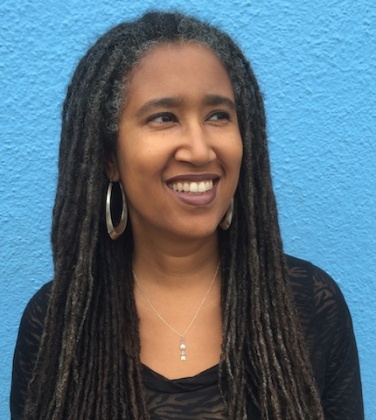by Karineh Mahdessian and Sophia Rivera
(intro by Ramona Pilar)
Las Lunas Locas is a Los Angeles-based poetry collective who aims to empower women through their different identities and cultures. They have a writing circle that has been meeting on Mondays for the past few years to “create a safe space for a community of self-identifying womyn to write, right and rite.” They also host/present/produce and organize a plethora of events and writing workshops in Los Angeles.
This is an amazing group of literary artisans who are inspiring in their level of energy commitment to community, and dedication to forging their own path (literally as you’ll see below) whether or not the mainstream takes notice.
Earlier this year, a group of about 30 of the Lunas embarked on a four city reading tour that began on a whim. Initially an invitation for poets to read at a bookstore San Francisco ballooned into “a wonderful, serendipitous event that grew to be too big to be contained,” according to Karineh Mahdessian, one of the co-facilitators of the Monday meetups and Lunas organizational juggernaut who helped to make the reading tour materialize. I followed their journey via social media and was blown away all that they were able to accomplish with the power of The Ask and a strong community.
In the tradition of a road journal, Karineh writes about that journey and what it took to take a group of about 30 women to Northern California for a reading tour.
**********
Las Lunas Locas, a womyn’s writing group from Los Angeles, formed into existence in July of 2014 and has met every Monday night at Here and Now in El Sereno. For the past two years, we have participated in various community poetry readings.
In November of 2015, five of the Lunas had the opportunity to read with the Poet Laureates of Los Angeles and San Francisco at Avenue 50 Studios in Highland Park. Continue reading “Lunas on the Road”









